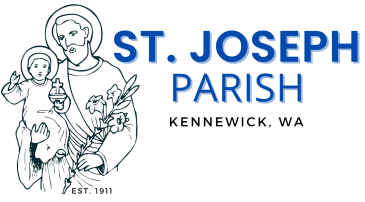PRAYER AND PONDERING POINTS
29TH SUNDAY IN ORDINARY TIME, YEAR A
October 18, 2020
Mon. Oct 19 Recall the Sunday Experience (29th Sun OT A)
(Sts. Isaac Jogues, John de Brébeuf and Companions +1642-49, North American Martyrs, Jesuit Missionaries to the Iroquois and Hurons in southern Ontario and upstate New York)
Was the stretch to 200 people at Mass an opportunity to return? Do you still need to exercise caution? Can you sing under your breath? (I [P. Riccardo] do in a bare whisper but don’t like it that much!) Do you accept, for now, what is possible and long for yet fuller Sundays?
Tue. Oct 20 Any change? Anything different? (29th Sun OT A)
(St. Paul of the Cross +1775, Priest, Founder of the Passionists who are penitential preachers)
Does the challenging question of “What belongs to Caesar and what belongs to God” continue to engage you? A prayerful and studied response to election questions can be furthered by a document from the USCCB (United States Conference of Catholic Bishops) called “Forming Consciences for Faithful Citizenship” available at usccb.org.
30TH SUNDAY IN ORDINARY TIME, YEAR A
October 19, 2020
Wed. Oct 21 Read (pray) the Gospel for the coming Sunday’s Mass: Mt 22:34-40 (30th Sun OT A)
The opposition to Jesus is strong. The Sadducees failed in their efforts at entrapment. Their rivals, the Pharisees, step up. “Which commandment in the law is the greatest?” Jesus responds by giving two commandments as one: the love of God and the love of neighbor. We, no doubt, are familiar with the response. The living of the response is another and vastly more challenging matter.
Thu. Oct 22 Read (pray) the first reading for the coming Sunday: Ex 22:20-26
(St. John Paul II +1920, Pope, this day, in 1978, was the day his papacy began, gave us the Catechism of the Catholic Church, the new Code of Canon Law, the 3rd edition of the Roman Missal, worldwide pastoral visits, world youth day and many other gifts and teachings)
This snippet from the Book of Exodus gives a nuanced look at what “neighbor” (cf. this Sunday’s Gospel) means. It cites the need to honor both the “alien” (“for you were once aliens in the land of Egypt”) and “your poor neighbors among my people.”
Fri. Oct 23 Read (pray) the Responsorial Psalm: Ps 18:2-3, 3-4, 47, 51
(St. John of Capistrano +1456, Franciscan priest, reformer, promoter of unity in a divided Church)
This is a Psalm of thanksgiving to God for victory over enemies and threats. These brief bits from a much longer Psalm are intended to convey the sense of both the individual and of the people that they can have confidence and trust in God. The “love of God and neighbor” of the Gospel is the foundation of such trust and confidence.
Sat. Oct 24 Read (pray) Sunday’s second reading: 1 Thes 1:5c-10
(St. Anthony Mary Claret +1870, reforming bishop of Santiago, Cuba, founder of the Claretians who continues his charism of the apostolate of the press)
This reading for this Sunday is a continuation of the reading for last Sunday. It is a continuation of the greeting of Paul to the church of Thessalonia. Paul continues to give thanks to them for how God has worked in them and through them. This time he builds on the notion of how God works in the Church. In life. From “imitators of us and of the Lord,” they “became a model for all the believers.” So that “in every place, your faith in God has gone forth.” This is how God acts in the Church – through those models of faith, those models of the love of God and of neighbor, those wonderful models we know in our own lives, THOSE MODELS THAT WE ARE TO BECOME.
Sun. Oct 25 Read (pray) the texts for this Sunday’s Mass
It seems that our world is still much broken around the question of “Who is my neighbor?” that Jesus answered so brilliantly in Chapter 15 of Luke’s Gospel (The Parable of the Good Samaritan”) and that should be plain to us from the readings for this Sunday. Is it?
